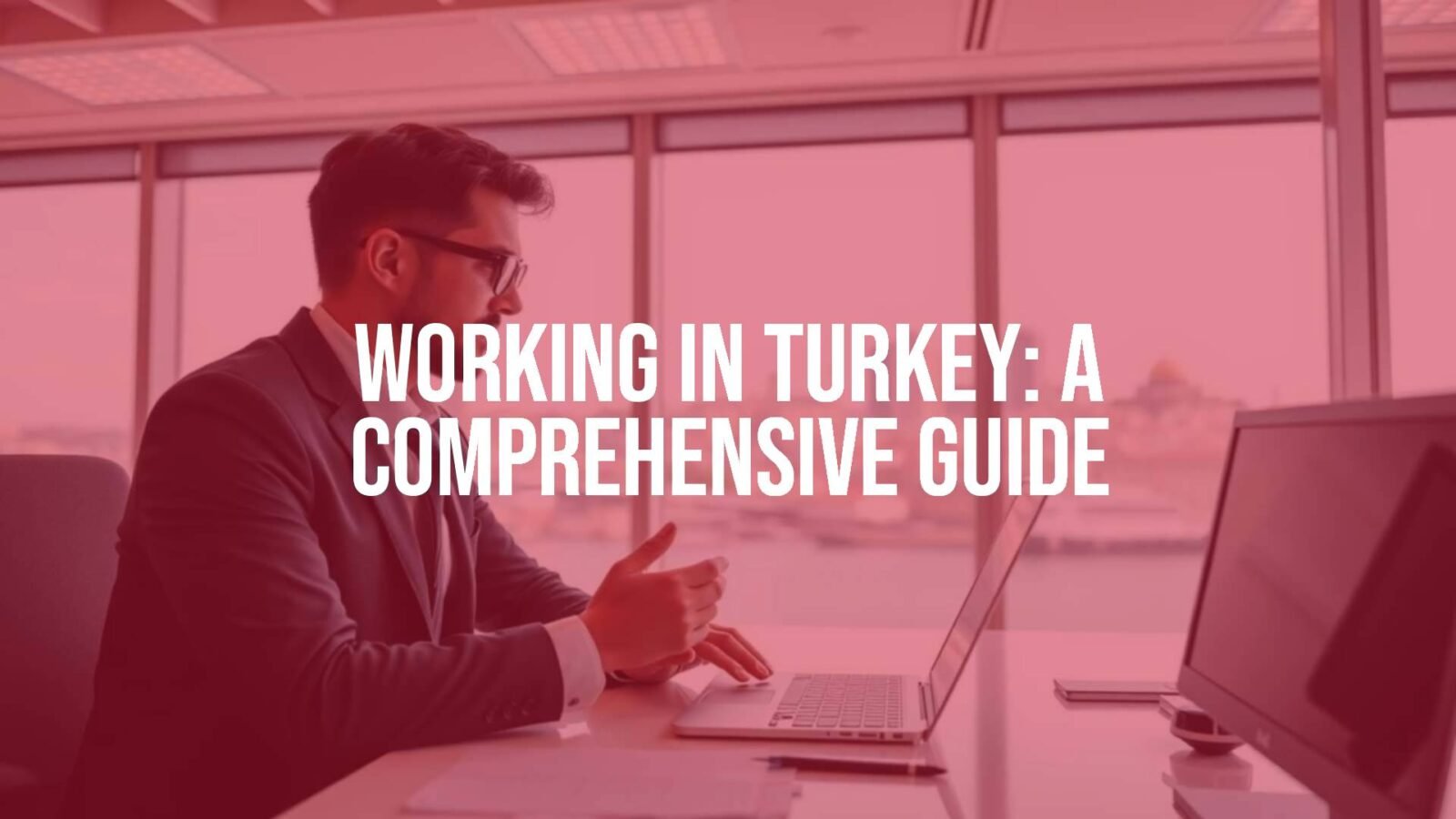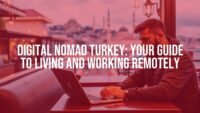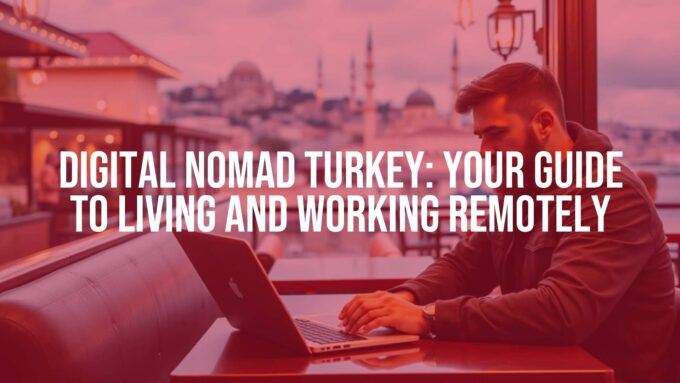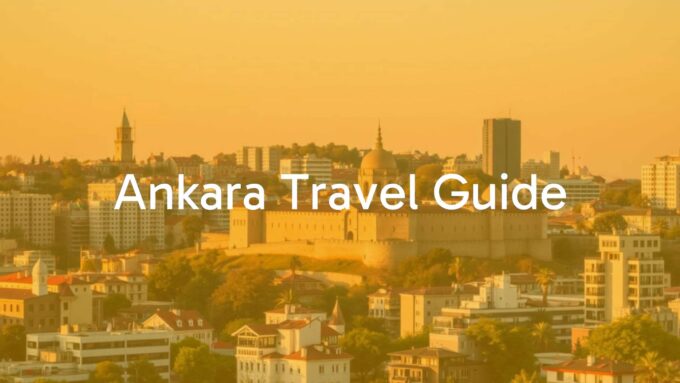Are you thinking about building your career in Turkey, a country known for its rich culture and history? Many people are interested in working in Turkey, but before making the move, you need to answer an important question: can you legally work there? The answer is yes-as long as you go through the required legal steps. Working in Turkey without the correct permission is not only against the rules but can also result in heavy fines, being forced to leave, or even being banned from re-entering. This guide will explain how you can get the right to work in Turkey, including who is allowed to work, what you need for a work permit, how to search for jobs, and what daily work life looks like.

Who Can Legally Work in Turkey?
The first thing to figure out is who is allowed to work in Turkey. Turkey has different rules for various types of residents and citizens, and each group has its own set of conditions.
Turkish Citizens and Permanent Residents
Turkish citizens are free to work in their home country without any extra steps. Permanent residents, who are normally foreigners allowed to stay in Turkey long-term, can also work without a separate work permit-having permanent residency gives them this right. Permanent residency lasts for a lifetime, giving stability and many job options.
Temporary Residents
Foreigners with temporary residency are in Turkey for a short time (for example, for study, travel, or short projects). Just having a temporary residence permit does not let you work. People in this group must get a legal work permit if they want to work. Trying to work without it, even with a temporary residence permit, is against the law and can bring serious problems.
Foreigners Who Need a Work Permit
Most foreigners planning to work in Turkey need a work permit. This is not just a document-it is required by law. The work permit allows you to get paid and live in Turkey. Without it, working for a company in Turkey is illegal. Often, the work permit also works as a residence permit, so you usually do not have to apply for both separately.
Who Can Get a Work Permit in Turkey?
Besides being a foreigner, you need to meet certain requirements to get a Turkish work permit. These rules make sure people who come to work are qualified and that jobs offered to foreigners are needed in Turkey.
Requirements for Employers and Employees
- Employees: You must have a clean criminal record and a confirmed job offer from a registered Turkish company. You need a signed job contract, an offer letter, and proof of your education (like university diplomas). A valid passport is also necessary.
- Employers: The company must be officially registered in Turkey and willing to sponsor your application. They also need to send supporting documents to the Ministry of Labor and Social Security (MLSS) within 10 days after your visa application.
Rules for Specific Industries
Some fields in Turkey might have extra rules for foreign workers. Sectors like tourism, management, translation, technical engineering, IT, and health care sometimes need specialized workers from abroad. If you work in any of these areas, make sure to check what qualifications or paperwork you need.
Different Rules for EU and Non-EU Citizens
| Group | Short-term stays (up to 90-180 days) | Long-term / employment |
|---|---|---|
| EU Citizens | No visa needed for many nationalities | Must still get a work permit |
| Non-EU Citizens | Visa required (except some diplomats) | Must get both a visa (if needed) and a work permit |
Types of Work Permits and Visas in Turkey
Turkey offers several kinds of work permits and visas, based on how long you will stay and the type of work you will do. Choosing the right one is important for your plans.
- Short-Term Work Permit: Usually for 1 year; given for specific jobs or projects. The permit is tied to a certain company or position.
- Long-Term Work Permit: For those who want to stay longer; often starts as a 1-year visa, which can be renewed. After 8 years on a regular work or residence permit, you can apply for a permanent one.
- Independent/Entrepreneur Work Permit: For people who want to start a business or work in certain professions. Applicants must show proof of skills, education, or investments that will benefit the country.
- Work Permit Exemptions: Rare, but possible for diplomats or under special agreements. Most workers, however, will still need a permit.
- Digital Nomad and Long-Stay Visas: Turkey does not yet have a visa specifically for digital nomads, but you may find a suitable long-stay visa if you meet certain requirements. Rules for remote workers may change, so make sure to check recent updates or consult a legal expert.

How to Apply for a Turkish Work Permit or Visa
Getting a work permit or visa in Turkey involves a few important steps, which differ slightly if you apply from inside or outside Turkey.
Applying from Inside Turkey
- You must have a residence permit already valid for at least 6 months.
- Your employer sends the application through the E-Permit System.
- Needed documents include: signed job contract, copy of your passport, proof of education, business registration paperwork, and recent financial documents from the employer.
- Your passport expiry date matters; permits will not be issued for more than 60 days before your passport expires.
Applying from Outside Turkey
- You start at the Turkish embassy or consulate in your own country.
- You will be given a 16-digit reference number after submitting your application.
- Your prospective employer in Turkey must send supporting documents to the MLSS within 10 days of your visa application.
- If your application is approved, you must start work within one month of entering Turkey-and always within 6 months of the permit date, or your permit will be canceled.
Employer Sponsorship
Getting a work permit in Turkey requires your future employer to take part in the process and submit certain documents. You cannot normally get a Turkish work permit without a job offer and an employer ready to sponsor you.
Renewing and Extending Your Work Permit
- Work permits are usually not permanent at first (unless you later get a permanent one).
- Renewal applications must be sent through the E-Permit System 60 days before your current permit runs out-late applications are not accepted.
- The first extension is usually for 2 years, and later ones for up to 3 years, as long as you stay at the same company.
- While waiting for renewal, you can keep working for up to 90 days after the old permit ends, provided you don’t change jobs.
Things to Remember Before Starting Work in Turkey
Preparing well before starting your job in Turkey will help avoid problems. Here’s what you should check first:
Checklist for Foreign Workers
- Valid passport
- Completed visa application
- Official letter of employment
- Signed work contract
- Updated CV
- Diplomas or certificates
- Medical insurance
- 2 biometric photos
- Police clearance (clean criminal record)
- Proof of local accommodation
Common Problems and Solutions
The process can sometimes be confusing, and not following the rules can lead to strict penalties. Many companies choose to work with Employer of Record (EOR) services to help manage paperwork and legal responsibilities. If you are unsure about something, consulting a lawyer with experience in Turkish immigration is recommended.
Workplace Rights and Benefits
Foreign workers in Turkey are protected by law. If you have a legal job, your employer must register you with the Turkish Social Security System, which covers health insurance, sick leave, pensions, and more. Make sure your employer is following the rules and you are fully registered-working without proper documents is illegal and risky.
How to Find a Job in Turkey
Before you even apply for a work permit, you need to get a job offer. The Turkish job market can be competitive, but there are steady opportunities in fields like technology, manufacturing, and hospitality.
How to Write a Turkish CV
- Include a photo (unless not requested)
- Add personal contact details
- Mention your education and job history
- Keep it under 2 pages and well-organized
- Clearly state your visa or residency status
- Mention your language skills
- Prepare a Turkish version of your CV if applying to a local company
Using Job Boards and Agencies
- Sign up on job sites like Kariyer.net, Eleman.net, Yenibiris, Qureos, and the Turkish version of LinkedIn
- You can also go to local public employment agency offices (İşkur), but these mainly help those with better Turkish skills
- Private agencies can also be helpful, especially for higher-level positions-ask about fees before starting
The Importance of Connections and Networking
Personal connections matter a lot in Turkey. Getting a recommendation or a referral from someone inside a company can be more important than just sending in your CV. Look for professional groups, expat networks, or platforms like InterNations to meet others and make professional contacts.
Internships and Volunteering
If you cannot find a full-time job right away, internships or volunteer work can give you local experience and references, which often help lead to a paid job. Employers in Turkey appreciate hands-on experience and practical skills.

Turkish Work Culture and Business Etiquette
Fitting in at work in Turkey means learning how businesses are run and understanding the unwritten cultural rules.
- Hierarchy: Many companies are organized from the top down, and respecting senior staff is important.
- Building Trust: Good relationships often matter as much as skills or qualifications. Avoid rushing negotiations and spend time getting to know your coworkers and partners.
- Business Meetings: It’s common for first meetings to focus more on building trust than business itself. Small talk is encouraged, but stay away from politics or controversial topics.
- Time Management: Being on time is respected. In restaurants, the host usually pays. If you are invited to someone’s home, bring a small gift like chocolates or flowers (avoid alcohol unless you know the hosts drink it).
- Work Hours: Standard office hours are Monday to Friday, from 9 AM to 6 PM with a lunch break. Overtime is paid extra, and you usually get 14 to 26 days of annual leave based on the years you have worked. Public holidays are respected, and most companies close on those days.
Social Security, Taxes, and Employee Benefits
Understanding your rights and the tax system is part of working legally in Turkey.
Social Security System (SGK)
- Your employer registers you with SGK, which covers health care, sick pay, pensions, and unemployment.
- You pay about 9% of your salary to SGK, and your employer pays 11%.
- Some countries have special agreements with Turkey-if you are covered by social security back home, you may not have to pay into the Turkish system (see the list below).
Countries with Social Security Agreements:
- Albania, Austria, Azerbaijan, Belgium, Bosnia-Herzegovina, Canada, Czech Republic, Denmark, France, Georgia, Germany, Italy, Libya, Luxembourg, Macedonia, Netherlands, Norway, Portugal, Romania, Spain, Sweden, Switzerland, United Kingdom
To be exempt, you need a special certificate. If not, you must pay social security in Turkey.
Income Tax
- Your income is taxed in Turkey through a system with different rates for different income levels.
- Your employer usually handles taxes, but you should learn how taxes apply to your situation. Talking to a tax adviser can be helpful.
Expats: Communities and Helpful Resources
Moving to a new country for work can feel overwhelming, but there are many places to get help.
Connecting with Other Expats
- Online communities like InterNations have large groups in Turkey. These groups organize regular events and meetings for newcomers and long-term expats alike.
- Look for expat groups based on your nationality or professional background to get tips and make friends.
Professional Help and Employer Services
- Some law firms, relocation experts, and financial advisers focus on helping foreign workers with paperwork, housing, and taxes.
- Bigger international companies may offer moving assistance and help finding housing. Ask your employer what support is provided.
Popular Cities for Foreign Workers
- Istanbul: Turkey’s largest city, full of job possibilities and social events
- Ankara: The capital, with government and administrative jobs
- Izmir, Antalya, Bodrum: Cities on the coast popular for tourism and a relaxed lifestyle
Learn about the city you’ll live in, so you know what to expect for housing, social life, and cost of living.

How to Start Your Career in Turkey
Starting a career in Turkey can be both exciting and challenging. To make the process easier, follow these steps:
- Make sure you have a clean police record, a valid passport, and a real job offer from a registered Turkish employer.
- Remember, your work permit usually acts as a residence permit so you don’t need to apply for both.
- Spend time making your CV fit for Turkish employers, search for jobs on local platforms, and build your network-personal connections are key for job success.
- If needed, look for internships or volunteer opportunities to get local experience.
- Once you start work, respect Turkish business habits-be patient, focus on trust and relationships, and learn basic Turkish phrases to show respect.
- Understand your rights at work, how the social security and tax systems work, and don’t hesitate to use support services and expat networks to help you with daily life and paperwork.
With steady effort, patience, and an open mind, working in Turkey can be a rewarding experience, both professionally and personally.















Leave a comment